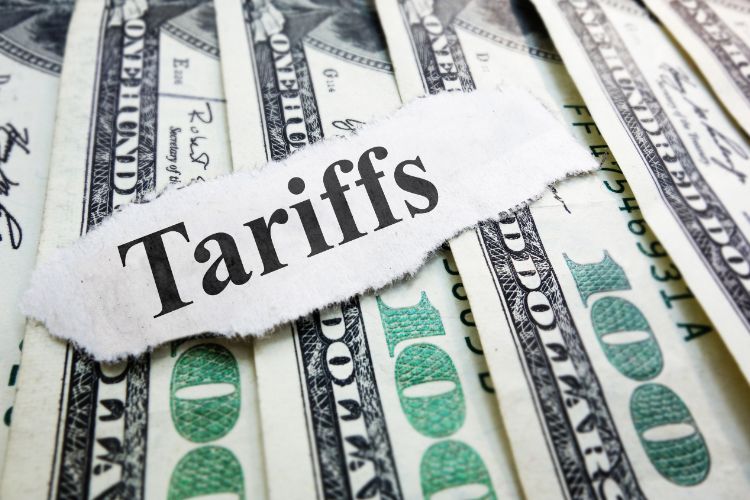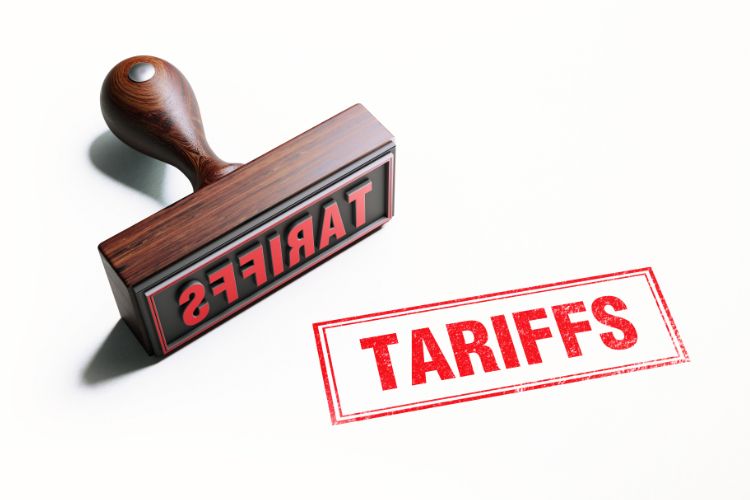Disclaimer: This article is for educational purposes only and does not constitute official legal or financial advice. Tariff regulations are complex and subject to change. Individuals should consult with a licensed attorney and tax professional to determine the best strategies for their unique business situation.
As President Donald J. Trump begins his second term in 2025, his administration has placed renewed emphasis on trade policies, domestic manufacturing, and national security, including the implementation of new tariffs. The latest tariff proposal focuses on increasing import duties on goods from China, Mexico, and Canada, citing concerns over trade imbalances, illegal immigration, and national economic interests.
While these tariffs aim to protect American industries and jobs, they also present significant challenges for small business owners. Increased import costs, supply chain disruptions, and shifting market dynamics may impact businesses in manufacturing, retail, food service, construction, and beyond.
Understanding the potential effects of these tariffs is essential for small business owners looking to remain competitive and financially stable in an evolving economic landscape.
At Peabody Law Firm, we help businesses across Southlake, Westlake, Trophy Club, Colleyville, Keller, and surrounding communities navigate legal and regulatory challenges, including the impact of tariffs and shifting trade policies.
What Are the Proposed Trump Tariffs?
Under the newly proposed trade policies, the Trump administration has outlined tariff increases on various imports:
- 25% Tariff on Imports from Canada and Mexico – Aimed at addressing concerns over illegal immigration and border security, these tariffs could significantly increase the cost of goods imported from two of the U.S.’s largest trade partners.
- 10% Tariff on Imports from China – Continuing the previous administration’s stance on economic competition with China, these tariffs seek to incentivize domestic production but could also raise costs for businesses reliant on Chinese imports.
- Expanded Tariffs on Specific Industries – Some reports indicate higher tariffs on technology products, automobile parts, and agricultural imports, which could disproportionately affect businesses that rely on these goods.
While the goal of these tariffs is to boost American manufacturing and reduce reliance on foreign goods, their effects on small businesses that source materials, components, or finished products from these regions could be substantial.
How the Trump Tariffs Could Impact Small Businesses

1. Increased Cost of Goods
For small business owners who import products or materials from affected countries, the increased tariffs will likely lead to higher costs. Whether it’s a retailer purchasing consumer goods from China, a contractor buying lumber from Canada, or a restaurant sourcing produce from Mexico, businesses may need to absorb significant price increases.
For example, if a furniture retailer currently imports dining tables from Mexico at a wholesale cost of $200 per unit, a 25% tariff could raise the cost to $250 per unit. If the business cannot pass this increase onto customers, its profit margins shrink, forcing cutbacks elsewhere.
2. Price Increases for Customers
To offset the increased costs, many small businesses will have no choice but to raise their prices. This can lead to:
- Reduced consumer demand if customers opt for cheaper alternatives.
- Competitive disadvantages if larger businesses can absorb the costs more effectively.
- Potential loss of loyal customers due to pricing concerns.
For industries that are price-sensitive—such as restaurants, clothing retailers, and home improvement businesses—even small price increases can drive customers toward more affordable competitors.
3. Supply Chain Disruptions
Many small businesses operate on just-in-time inventory models, meaning they rely on steady and predictable supply chains to keep their products stocked. Tariffs disrupt this system by making it harder or more expensive to obtain necessary materials and goods.
Potential supply chain challenges include:
- Delays in shipments as companies look for alternative suppliers.
- Limited availability of materials, particularly in manufacturing and construction.
- Increased lead times, making it difficult for businesses to fulfill orders promptly.
Small business owners who do not have diversified supplier relationships may find themselves at a severe disadvantage.
4. Retaliatory Trade Measures from Other Countries
Trade policies don’t exist in isolation. Countries affected by U.S. tariffs often impose retaliatory tariffs on American exports, making it harder for U.S. businesses to sell their products abroad.
If Canada, Mexico, or China increase tariffs on American-made goods, small businesses that export to these regions may see:
- Higher costs to enter foreign markets.
- Reduced demand for U.S. products internationally.
- Loss of international partnerships or contracts.
For businesses that rely on exporting goods overseas, these countermeasures could significantly impact revenue and expansion efforts.
Strategies for Small Business Owners to Adapt
Despite these challenges, small business owners can proactively adjust their strategies to mitigate the impact of the proposed tariffs.
1. Diversify Suppliers & Explore Domestic Options
- Seek out alternative suppliers in non-tariffed countries to lower costs.
- Explore domestic sourcing options to avoid import tariffs altogether.
- Partner with multiple vendors to reduce reliance on a single supply chain.
2. Improve Operational Efficiency
- Streamline expenses to offset increased costs.
- Invest in automation or supply chain improvements to improve productivity.
- Negotiate bulk purchasing discounts with suppliers.
3. Communicate Pricing Changes with Customers
- Be transparent about price increases due to external factors.
- Offer loyalty programs, discounts, or added value to retain customer interest.
- Consider adjusting product lines to focus on more profitable items.
4. Monitor Policy Changes & Work with Industry Groups
- Stay informed about ongoing tariff negotiations and potential adjustments.
- Engage with local trade organizations advocating for small business interests.
- Consider speaking with legislators about the impact of tariffs on small businesses.
How Peabody Law Firm Can Help Small Businesses
At Peabody Law Firm, we provide expert legal guidance for business owners facing challenges due to tariffs, trade policies, and regulatory changes. We assist businesses in Southlake, Westlake, Trophy Club, Colleyville, Keller, and surrounding communities with:
✔ Business Structuring & Trade Compliance
✔ Contract Negotiation & Supplier Agreements
✔ Dispute Resolution & Regulatory Compliance
✔ Export & Import Law Guidance
✔ Risk Mitigation Strategies for Tariff Increases
By working with an experienced business attorney, small business owners can develop a strategic plan to navigate trade policy changes and protect their bottom line.
Final Thoughts: Preparing for an Uncertain Trade Landscape
While the Trump administration’s proposed tariffs aim to strengthen domestic industries, they pose significant challenges for small businesses reliant on imported goods and materials. Planning ahead and implementing cost-saving strategies will be crucial for maintaining profitability and sustainability.
Since trade policies are complex and subject to change, small business owners should conduct their own research, monitor ongoing legislative updates, and consult with an experienced business attorney for tailored legal guidance.
For expert business law support and tariff mitigation strategies, contact Peabody Law Firm today to discuss how we can help your business adapt to changing trade policies.

